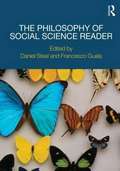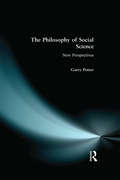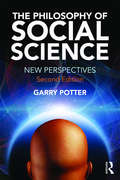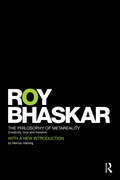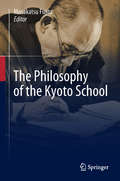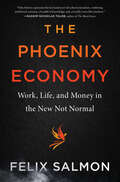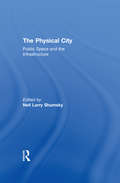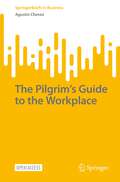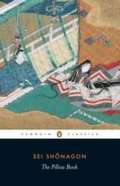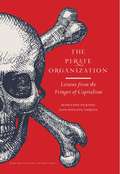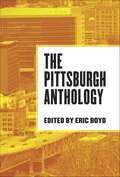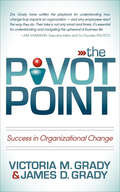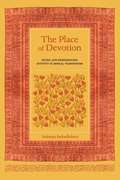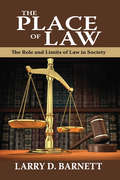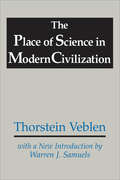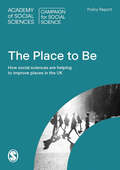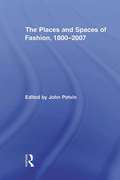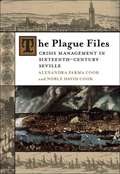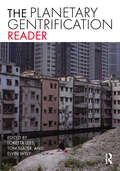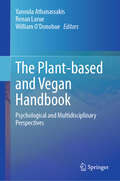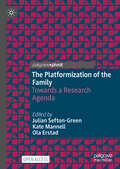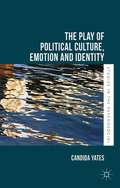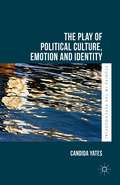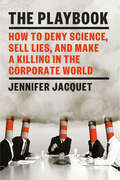- Table View
- List View
The Philosophy of Social Science Reader
by Francesco Guala Daniel SteelThe Philosophy of Social Science Reader is an outstanding, comprehensive and up-to-date collection of key readings in the philosophy of social science, covering the essential issues, problems and debates in this important interdisciplinary area. Each section is carefully introduced by the editors, and the readings placed in context. The anthology is organized into seven clear parts: Values and Social Science Causal Inference and Explanation Interpretation Rationality and Choice Individualism Norms Cultural Evolution. Featuring the work of influential philosophers and social scientists such as Ernest Nagel, Ian Hacking, John Searle, Clifford Geertz, Daniel Kahneman, Steven Lukes and Richard Dawkins, The Philosophy of Social Science Reader is the ideal text for philosophy of social science courses, and for students in related disciplines interested in the differences between the social and natural sciences.
The Philosophy of Social Science: New Perspectives
by Garry PotterNew Perspectives of the Philosophy of Social Science provides a comprehensive history, explanation and critique of empiricism and positivism within the natural and social sciences, as well as an overview of the interpretivist/hermeneutic tradition in social science. Questions concerning the criteria for judging truth and validity, the nature of rationality, social reality and scientificity, unfold in a uniquely accessible dialogue format.Students with no previous knowledge of this highly contested field will find themsleves taken on an entertaining and challenging philosophical journey. The dialogue anticipates the most frequently asked questions of such readers, provides clear explanations of all specialised terminology and contextualises contemporary debates. It thus transforms potential confusion into a clear understanding of complex issues. The text shows how the perspectives of earlier traditions persist in modified form, covering poststructuralism, postmodernism, critical theory, feminist epistemology and concludes with a critical realist account of both natural and social science.New Perspectives of the Philosophy of Social Science is essential reading for students of social theory and the philosophy of social science. Students across the full range of social science disciplines will find the book of interest. Sociology students will find it a particularly valuable resource.
The Philosophy of Social Science: New Perspectives, 2nd edition
by Garry PotterNow in its second edition, this comprehensive textbook offers an exceptionally accessible yet in-depth introduction to the philosophy of social science. Students with no previous knowledge will find themselves taken on an engaging philosophical journey: the book’s unique dialogue format anticipates their most frequently asked questions and provides clear explanations of specialised terminology and essential contextualisation of contemporary debates. Encompassing both traditional and contemporary perspectives, the book explores the questions and debates raised by all the major theoretical positions in the philosophy of social science, including positivism, empiricism, rationalism, hermeneutics, feminist epistemology, postmodernism and critical realism. The first edition of this book had a Eurocentric bias, as does virtually all other textbooks covering this subject matter. This has been corrected in the second edition and includes a new chapter on the contributions of Islam to philosophy, natural science social science including sociology. The second edition also has a newly written chapter on pragmaticism and neo-pragmaticism, as well as strengthened coverage of hermeneutics, postmodernism and critical realism. The book‘s rich pedagogic support includes: point-by-point summaries introducing the scope of every chapter; discussion questions; further reading lists; and a glossary of key terminology. This excellent textbook is designed to provide every student with a clear understanding of important and complex issues. It is essential reading for all students of philosophy of social science, whether at undergraduate or Masters level and regardless of their disciplinary background. ?
The Philosophy of metaReality: Creativity, Love and Freedom (Classical Texts in Critical Realism (Routledge Critical Realism))
by Roy BhaskarFirst Published in 2012. Routledge is an imprint of Taylor & Francis, an informa company.
The Philosophy of the Kyoto School
by Masakatsu FujitaThe main purpose of this book is to offer to philosophers and students abroad who show a great interest in Japanese philosophy and the philosophy of the Kyoto school major texts of the leading philosophers. This interest has surely developed out of a desire to obtain from the thought of these philosophers, who stood within the interstice between East and West, a clue to reassessing the issues of philosophy from the ground up or to drawing new creative possibilities.The present condition seems to be, however, that the material made available to further realize this kind of intellectual dialogue is far too scarce. This book is intended to be of some help in this regard.The book presents selected texts of representative philosophers of the Kyoto school such as Nishida Kitaro, Tanabe Hajime, Miki Kiyoshi, Nishitani Keiji, and others who best illustrate the characteristics of this school, and works that together portray its image as a whole. Those who are interested in Japanese philosophy or specifically the philosophy of the Kyoto School can survey a comprehensive representation from this book.These texts are, of course, quite difficult and cannot be well understood without sufficient preliminary knowledge. Expository essays have therefore been included after each text to provide guidance. In each of these commentaries a scholar of our time with deep understanding of the philosopher in question has provided an account of his life, intellectual journey, and the significance of the text included here.From this book will emerge a new dialogue of ideas that in turn will engender new developments in philosophy, thereby further expanding the network of philosophical thought worldwide.
The Phoenix Economy: Work, Life, and Money in the New Not Normal
by Felix SalmonAn award-winning journalist presents a tour-de-force analysis—drawing from history, economics, sociology, and popular culture—of the profound and transformative years of the early 2020s, both for individuals and for the global economy.We are living in a strange world—Salmon calls it “the New Not Normal.” The Phoenix Economy explores the ramifications of the pandemic years, many of which are surprisingly positive. In doing so, Salmon makes sense of one of the most disorienting and devastating events of our lifetimes. He examines the critical aspects of our lives that have been transformed in three parts: Time and Space, Mind and Body, and Business and Pleasure.Salmon’s keen observations, on everything from meme stocks to lobster rolls, are backed by a deep understanding of financial markets and the quirks of human behavior. His clear-eyed perspective on human and economic events, combined with his considerable analytical and observational skills, make The Phoenix Economy an insightful, fast-paced read.This book is essential for anyone wanting a better understanding of the near- and long-term effects of this new era and what they portend for our lives. It’s a penetrating insight into what happened—and, more important, what lies ahead.
The Physical City: Public Space and the Infrastructure
by Neil Larry ShumskyFirst Published in 1996. Part of a series that brings together more than 200 scholarly articles pertaining to the history and development of urban life in the United States during the past two centuries. The physical development of cities and their infrastructure is considered in Volume 2, which focuses on city planning and its origins in the Rural Cemetery Movement, the City Beautiful Movement, and the role of business in advocating more rational and efficient urban places. Volume 2 also contains articles about essential aspects of the urban infra structure and the provision of basic services essential for urban survival—water, sewer, and transportation systems.
The Pilgrim’s Guide to the Workplace (SpringerBriefs in Business)
by Agustin ChevezThis is an Open Access book.Hoping to incubate a unique idea about workplace design, Dr. Agustin Chevez walked in isolation for 42 days from Melbourne to Sydney. His pilgrimage delivered 34 Signposts, a collection of insights which hold the promise to guide us to a better place to work. While firmly positioned within the shifting context of work, the Signposts point away from reactive solutions with a short shelf life. Instead, these markers are infused with a diversity of thought instilled by Agustin’s pilgrimage and reclaim the forgotten qualities of solitude, boredom, adversity, and absurdity as mechanisms to deliver innovation and create improved working environments. On his way to Sydney Agustin relied on maps and people with local knowledge of the lands he traversed. Similarly, in this book, he consults people with local knowledge in various design disciplines, management, and technology as he navigates the many regions of the workplace and work practices covered by the Signposts. When he reaches the end of the known trails, he starts laying paths that take us closer to where the Signposts converge. Agustin writes from the perspective of a pilgrim, architect, workplace consultant, and researcher and invites you to join him as a fellow pilgrim. You will be rewarded with a journey that revisits our assumptions about the way we use space to host the ever-evolving notion of work – an expedition leading not only to better versions of the workplace, but a better version of ourselves. “This book takes about three hours to read, and it could take a lifetime to fully extract all the benefits that it contains. This does not suggest that there are not immediate benefits available from reflecting on and applying the Signposts that are core to the book's intellectual contribution.” - Peer Review extract
The Pillow Book
by Sei Shonagon Meredith MckinneyFrom short tales to lists of beautiful and ugly things, Sei Shonagon tells of a leisurely life in the court of tenth century Heian Japan. She can be lyrical, she can show her claws, but she is always fascinating.
The Pirate Organization
by Jean-Philippe Vergne Rodolphe DurandA short history of piracy and capitalismWhen capitalism spread along the trade routes toward the Indies...when radio opened an era of mass communication . . . when the Internet became part of the global economy...pirates were there. And although most people see pirates as solitary anarchists out to destroy capitalism, it turns out the opposite is true. They are the ones who forge the path.In The Pirate Organization, Rodolphe Durand and Jean-Philippe Vergne argue that piracy drives capitalism's evolution and foreshadows the direction of the economy. Through a rigorous yet engaging analysis of the history and golden ages of piracy, the authors show how pirates form complex and sophisticated organizations that change the course of capitalism. Surprisingly, pirate organizations also behave in predictable ways: challenging widespread norms; controlling resources, communication, and transportation; maintaining trade relationships with other communities; and formulating strategies favoring speed and surprise. We could learn a lot from them-if only we paid more attention.Durand and Vergne recommend that rather than trying to stamp out piracy, savvy entrepreneurs and organizations should keep a sharp eye on the pirate space to stay successful as the game changes-and it always does.First published in French to great critical acclaim and commercial success as L'Organisation Pirate: Essai sur l'évolution du capitalisme, this book shows that piracy is not random. It's predictable, it cannot be separated from capitalism, and it likely will be the source of capitalism's continuing evolution.Pirates, surprisingly, also behave in predictable ways: challenging widespread norms; controlling resources, communication, and transportation; maintaining trade relationships with other communities; and formulating strategies favoring speed and surprise.And we can learn from them.Durand and Vergne recommend that rather than trying to stamp out piracy, savvy companies should keep a sharp eye on the pirate space. Only then can they detect how capitalism's rules of engagement are changing-and then revise their business practices to remain successful in the new game.
The Pittsburgh Anthology (Belt City Anthologies)
by Eric Boyd&“Characterizing a place can be an elusive project, but The Pittsburgh Anthology is . . . diverse, surprising, eloquent, playful, scrappy, and tenacious.&” —Ploughshares Pittsburgh is ever-changing—once dusted with soot from the mills, parts of the city now gleam with the polish of new technologies and little remains of what had been there before. The essays and artwork in this anthology aim for the surprising, elusive stories that capture a Pittsburgh that is in transition. Contributors run the gamut from MacArthur-award winning photographer, LaToya Ruby Frazier to 15-year-old Nico Chiodi, the book&’s youngest contributor who chronicles the doings of the North Side Banjo Club. &“Everyone in this book,&” writes editor, Eric Boyd, &“is talking about the city, the things surrounding it; all of the pieces have been created with experience, intimacy, and personality. This book, I hope, will speak to you, not at you. Because we all know this city is changing. We&’re just not exactly sure what that means.&” Included are contributions by Amy Jo Burns, LaToya Ruby Frazier, Ben Gwin, Cody McDevitt, David Newman, and many more. &“These voices are varied and quirky, some polished and professional sounding, some a little rough around the edges. But they are uniformly interesting and genuine.&” —Pittsburgh Post-Gazette &“What editor Eric Boyd has chosen to do is temper all of the Most Livable City rah rah with essays, stories and poems of a grittier, more complex nature.&” —Pittsburgh Magazine &“This collection is stimulating for insiders and outsiders alike, a portrait Boyd has designed to be from-the-streets, warts-and-all.&” —Bill O&’Driscoll, PGH City Paper
The Pivot Point: Success in Organizational Change
by Victoria M. Grady James D. GradyThe source of the problem is not so much the new, but the threat of the loss of the old. Resistance to change is often grudgingly accepted as an unavoidable challenge for organizations striving to remain competitive in the global marketplace. However, NOT ONE of the existing change methodologies has recognized, integrated, or even mentioned the true origin of the term Resistance. How can your organization avoid the 70% organizational change failure rate that has plagued change initiatives for more than 15 years? Is there an organizational change tool that will predictably and measurably improve the overall success rate? Drs. Victoria (Jr.) and James (Sr.) Grady have uncovered the answers! The Pivot Point presents the verdict in two easy to read sections: The Pivot Point provides an explanation, not an excuse, for an organizational change failure rate which has continued to hover near 70% for 15 + year. The Pivot Point highlights the steps to measure, track, and proactively intervene to maximize change success. The Pivot Point introduces information that will enhance, not replace, existing methodologies currently implemented by change agents and consultants.
The Place of Devotion
by Sukanya SarbadhikaryA free ebook version of this title is available through Luminos, University of California Press' new open access publishing program for monographs. Visit www.luminosoa.org to learn more. Hindu devotional traditions have long been recognized for their sacred geographies as well as the sensuous aspects of their devotees' experiences. Largely overlooked, however, are the subtle links between these religious expressions. Based on intensive fieldwork conducted among worshippers in Bengal's Navadvip-Mayapur sacred complex, this book discusses the diverse and contrasting ways in which Bengal-Vaishnava devotees experience sacred geography and divinity. Sukanya Sarbadhikary documents an extensive range of practices, which draw on the interactions of mind, body, and viscera. She shows how perspectives on religion, embodiment, affect, and space are enriched when sacred spatialities of internal and external forms are studied at once.
The Place of Law: The Role and Limits of Law in Society
by Larry BarnettIn this stimulating volume, Larry D. Barnett locates a fundamental defect in widespread assumptions regarding the institution of law. He asserts that scholarship on law is being led astray by currently accepted beliefs about the institution, and as a result progress in understanding law as a societal institution will be impeded until a more accurate view of law is accepted. This book takes on this challenge. The Place of Law addresses two questions that are at the heart of the institution of law. Why is law an evidently universal, enduring institution in societies characterized by a relatively high level of economic development and a relatively high degree of social complexity? And why do the concepts and doctrines of the institution of law differ between jurisdictions (states or nations) at one point in time and vary within a particular jurisdiction over time? These two questions, Barnett believes, should be prominent in any study of law. The framework for law Barnett proposes is concerned with activities that are fundamental aspects of social organization, that is, activities that are deeply embedded in social life. His viewpoint is grounded on a body of quantitative research pertinent to the societal sources and limits of law. Barnett argues that this perspective applies only to law in sovereign, democratic nations that are economically advanced and socially complex. In other environments, law's place as a societal institution is less secure. This innovative perspective will do much to enhance understanding and appreciation of the role of law in modern societies.
The Place of Science in Modern Civilization: And Other Essays (1919)
by Thorstein VeblenOn its original publication in 1919, The Place of Science in Modern Civilization was recognized as a major contribution, and today Veblen continues to command attention and respect. This volume includes some of his most seminal work, essays that have critical, almost devastating implications for capitalist society and mainstream economic theory as well as Marxism and socialism in general.The continuing power of Veblen's work derives both from the penetration and range of his analysis and the arguable failure of modern society and social science theory to change in any material respect since he worked. The continuing relevance of his topics and ideas is manifest. In this volume in particular, Veblen addresses controversies over the relations of deduction and induction and efforts to produce truth, belief systems, and language, disputes about the significance of business mergers and acquisitions, and questions about the historical meaning and status of socialism. All of these are subjects of continuing interest and concern.The first six essays are fundamental contributions to the study of the preconceptions that drive thought and modern science and their origins. The next nine essays apply Veblen's thinking to critiques of other economists and capitalism. Three of these nine essays represent fundamental components of Veblen's view of capitalism and its problems are of lasting interpretive and analytic value. The final three essays in the book, and in particular the last two, are examples of a genre of thinking which, while not uncommon among social scientists of the period in which Veblen worked haven been discredited and certainly have no lasting value, being conjectural history using such concepts as natural selection.As Warren Samuels notes in his stimulating introduction to this new edition, "Veblen was heterodox, iconoclastic, sardonic, caustic, and satiric. He also was brilliant, penetrating, original, courageous, literarily dram
The Place to Be?: How social sciences are helping improve places in the UK
by Campaign for Social ScienceThis Academy of Social Sciences report shows how UK social sciences are making powerful practical contributions to improving places – cities, regions, counties or countries – in the UK. It includes 24 case studies highlighting how university-based social scientists are helping with place-based ‘levelling up’. It covers many different social science disciplines in all parts of the UK working on projects from the purely local to those that tackle issues that occur across the UK but that affect different areas or regions differently. The examples are not about broader social science research or policy prescriptions but practical efforts to work with private sector businesses, local authorities and local health and education bodies and others to improve area-based disadvantage in the UK.
The Place to Be?: How social sciences are helping improve places in the UK
by Campaign for Social ScienceThis Academy of Social Sciences report shows how UK social sciences are making powerful practical contributions to improving places – cities, regions, counties or countries – in the UK. It includes 24 case studies highlighting how university-based social scientists are helping with place-based ‘levelling up’. It covers many different social science disciplines in all parts of the UK working on projects from the purely local to those that tackle issues that occur across the UK but that affect different areas or regions differently. The examples are not about broader social science research or policy prescriptions but practical efforts to work with private sector businesses, local authorities and local health and education bodies and others to improve area-based disadvantage in the UK.
The Places and Spaces of Fashion, 1800-2007 (Routledge Research in Cultural and Media Studies #16)
by John PotvinThe Places and Spaces of Fashion, 1800-2007 brings together art, design, fashion, and a much neglected concern for its spatial realities. The spaces and places of fashion have often been overlooked in the writing of fashion history and visual culture. More often than not, however, these environments mitigate, control, inform, and enhance how fashion is experienced, performed, consumed, seen, exhibited, purchased, appreciated and of course displayed. Space, as this volume attempts to illustrate, is itself a representational strategy on par with and influencing the visibility and visuality of fashion. Innovative and challenging, the essays in this volume explore various physical and conceptual spaces, moving from physical environments to the two-dimensional with paintings, illustrations, and photographs to chart similarities, differences, and complex nuanced relationships between environments, fashion, identities, and visuality. The volume also navigates various sites (both permanent and temporary) of production, circulation, exhibition, consumption, and promotion of fashion that define meaning and knowledge about a culture or individual by providing for a bond between embodied consumers/spectators and fashion objects. The Places and Spaces of Fashion, 1800-2007 is a compelling project with a thematic, theoretical, and historiographic approach that is at once both focused yet far-reaching and original in its implications. The volume engages with questions attending to the ‘modern condition’ by seamlessly weaving interdisciplinary discussions of the visual with material culture to explore the spatial dimension(s) of fashion. Some of the essays explore new and exciting spaces while others offer compelling revisionary analyses of relatively known sources
The Plague Files: Crisis Management in Sixteenth-Century Seville (Lena-Miles Wever Todd Poetry Series Award)
by Noble David Cook Alexandra Parma CookIn the first half of the 1580s, Seville, Spain, confronted a series of potentially devastating crises. In three years, the city faced a brush with deadly contagion, including the plague; the billeting of troops in preparation for Philip II's invasion of Portugal; crop failure and famine following drought and locust infestation; an aborted uprising of the Moriscos (Christian converts from Islam); bankruptcy of the municipal government; the threat of pollution and contaminated water; and the disruption of commerce with the Indies. While each of these problems would be formidable on its own, when taken together, the crises threatened Seville's social and economic order. In The Plague Files, Alexandra Parma Cook and Noble David Cook reconstruct daily life during this period in sixteenth-century Seville, exposing the difficult lives of ordinary men, women, and children and shedding light on the challenges municipal officials faced as they attempted to find solutions to the public health emergencies that threatened the city's residents. Filling several gaps in the historiography of early modern Spain, this volume offers a history of not only Seville's city government but also the medical profession in Andalusia, from practitioner nurses and barber surgeons (who were often the first to encounter symptoms of plague) to well-trained university physicians. All levels of society enter the picture -- from slaves to the local aristocracy. Drawing on detailed records of city council deliberations, private and public correspondence, reports from physicians and apothecaries, and other primary sources, Cook and Cook recount Seville's story in the words of the people who lived it -- the city's governor, the female innkeepers charged with reporting who recently died in their establishments, the physicians who describe the plague victims' symptoms. As Cook and Cook's detailed history makes clear, in spite of numerous emergencies, Seville's bureaucracy functioned with relative normality, providing basic services necessary for the survival of its citizens. Their account of the travails of 1580s Seville provides an indispensable resource for those studying early modern Spain.
The Planetary Gentrification Reader
by Loretta Lees Tom Slater Elvin WylyGentrification is a global process that the United Nations now sees as a human rights issue. This new Planetary Gentrification Reader follows on from the editors’ 2010 volume, The Gentrification Reader, and provides a more longitudinal (backward and forward in time) and broader (turning away from Anglo-/Euro-American hegemony) sense of developments in gentrification studies over time and space, drawing on key readings that reflect the development of cutting-edge debates. Revisiting new debates over the histories of gentrification, thinking through comparative urbanism on gentrification, considering new waves and types of gentrification, and giving much more focus to resistance to gentrification, this is a stellar collection of writings on this critical issue. Like in their 2010 Reader, the editors, who are internationally renowned experts in the field, include insightful commentary and suggested further reading. The book is essential reading for students and researchers in urban studies, urban planning, human geography, sociology, and housing studies and for those seeking to fight this socially unjust process.
The Plant-based and Vegan Handbook: Psychological and Multidisciplinary Perspectives
by Yanoula Athanassakis William O’Donohue Renan LarueThe Plant-based and Vegan Handbook is the first of its kind to bring together interlocking – and sometimes conflicting – perspectives focused on veganism and plant-based living. As an interdisciplinary volume the noted contributors are from the fields of medicine, psychiatry, environmental studies, sociology, marine ecology, philosophy, agriculture, psychology, animal studies, religion, economics, literature, business, and law. Despite a range of individual preferences, these authors advance a scientific argument for a societal move away from the current model of human and nonhuman animal relationships. In our Anthropocene era experts not only debate about how human beings will , survive on Earth, but more particularly are more concerned with how they will thrive. As evidenced by the authors in this collection, it will involve a reconsideration of the way our species relates to the planet and to other species. This volume can serve as a critical reference work, especially for students and scholars working in both emerging and established fields such as psychology, medicine, animal studies, food studies, environmental studies, philosophy, animal ethics, and marine ecology.
The Platformization of the Family: Towards a Research Agenda
by Julian Sefton-Green Ola Erstad Kate MannellThis open access book outlines how the digital platforms that mediate so many aspects of commercial and personal life have begun to transform everyday family existence. It presents theory and research methods to enable students and scholars to investigate the changes that platformization has brought to the routines and interactions of family life including intergenerational communication, interpersonal relationships, forms of care and togetherness. The book emerged from a seminar jointly funded by the Collaboration of Humanities and Social Sciences in Europe project, the Norwegian Research Council and The Australian Centre of Excellence for the Study of the Digital Child.
The Play of Political Culture, Emotion and Identity (Studies in the Psychosocial)
by Candida YatesOffering a uniquely 'psycho-cultural' take on the emotional dynamics of UK political culture this book uses theories and research in psychoanalysis, cultural and media studies and political sociology. It explores the cultural and emotional processes that shape our relationship to politics in a media age, referencing Joanna Lumley to Nigel Farage.
The Play of Political Culture, Emotion and Identity (Studies in the Psychosocial)
by Candida YatesOffering a uniquely 'psycho-cultural' take on the emotional dynamics of UK political culture this book uses theories and research in psychoanalysis, cultural and media studies and political sociology. It explores the cultural and emotional processes that shape our relationship to politics in a media age, referencing Joanna Lumley to Nigel Farage.
The Playbook: How to Deny Science, Sell Lies, and Make a Killing in the Corporate World
by Jennifer Jacquet&“Brilliantly subversive and witty. If you want to be a vile, greedy capitalist, this how-to book will be a great help. And if you want to identify vile, greedy capitalists, it will show you how to recognize them. A landmark book.&” —Brian EnoARE YOU A CORPORATE EXECUTIVE OUT TO MAKE YOUR FORTUNE AT ANY COST? ARE YOU WORRIED ABOUT &“FACTS&” AND &“EXPERTS&” GETTING IN THE WAY OF COMPANY PROFITS? DO YOU WISH YOU COULD MAKE SCIENTISTS, JOURNALISTS, AND ANYONE WHO ASKS QUESTIONS ABOUT YOUR SUSPECT BUSINESS PRACTICES DISAPPEAR? LOOK NO FURTHER. Whether you are flogging tobacco, dealing in oil, pushing pharmaceuticals, denying climate change, or exploiting workers, The Playbook is here to help you obfuscate your way to what you want. Included is how to: • Massage the statistics to suit your needs. Or, even better, fund new studies to challenge inconvenient findings • Attract and cultivate experts who are out to make some extra cash • Make your problem somebody else&’s problem—ideally, consumers&’ or the government&’s • Remember that PR firms, think tanks, lawyers, uncritical journalists, and threats of harassment are your friends! Follow these rules and you are guaranteed to make a killing. It makes economic sense, after all.
